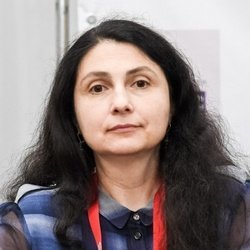“The strangest thing is that it has only become more sexism in modern cartoons”
About how Soviet cartoons are perceived through the prism of the struggle for equality
What was considered “normal” 20 years ago has a distinct whiff of abnormality today. For example, the trend of change is clearly visible in the attitude of world communities to worldview problems, such as racism, sexism and other forms of discrimination. Various spheres of our life are considered under the evaluation magnifying glass to protect humanity from incorrect social phenomena. Even cinema with children's cartoons constructed in the last century doesn't remain untouchable. Realnoe Vremya talked to experts about which cartoons of childhood from the point of view of modern ethics can get a negative assessment.
“Most of the problems that, so to speak, “defenders” find in them are made up”
Nina Romodanovskaya, editor-in-chief of ProfiCinema online portal, says that she is periodically an unwitting spectator of discussions concerning discrimination in cinema.

Romodanovskaya notes that in the cartoons such as Well, Just You Wait!, Prostokvashino, The Snow Queen, significant psychological aspects are considered. For example, the relationship of parents and children, love relationships, communication with smaller brothers and nature.
- The unique partnership of Matroskin and Sharik in Prostokvashino develops sociocentric values in the child, indicates the importance of friendship and acceptance of their friend, despite the difference in interests and goals.
- In The Snow Queen, there is spiritual education of a person, the inner strength is extolled, and the value of love.
- When analyzing the cartoon The Scarlet Flower, we see the rise of individuality in the structure of human values.
Such opinion about these cartoons has been formed by several generations for decades. However, as Romodanovskaya notes, the world communities do now see completely different ideas in them.
- The ideal heroine, Nastenka from The Scarlet Flower, who shows her good nature, is criticised by certain social groups. The false value of calm temperament and self-denying behaviour is rewarded by the union with a handsome prince. But the question arises: is this strategy valid in modern life?
- Discrimination is not just about women. For example, in The Snow Queen, by modern standards, the plot is compared to the ring where two different temperamentally young ladies find out who has more rights to an amorphous man.
- Prostokvashino is no longer considered a fun cartoon about the life of Soviet family and friends. In it, they find a tired and dissatisfied mother who is forced to wash the pans, hiding the dresses in the closet. And a careless and negative-liberal dad who only wants peace and agrees to the “whims” of his wife.
Adaptive cartoons
Film critic Adilya Khaybullina believes that we should be proud of the Soviet cinema.

“The above mentioned cartoons are adapted for everyone," says Adilya. “Only you need to understand that in an adequate world and in the appropriate family, cartoons are watched together with parents, and then they also discuss what they have seen with their parents. In general, cartoons up to a certain age need to be chosen. Only parents are responsible for the children's acceptance of certain information. It would be wrong to shift the blame to cinema. All the child's thoughts mirror the environment in which he or she lives.”
“Now I see a lot more unacceptable words and actions in the behaviour of characters”
The representative of the feminist community, photographer Yekaterina Mamontova holds the same opinion:
“The child's psyche is elastic," says Yekaterina. “You can't say that a couple of cartoons can make a child asocial. However, if a child hears something from a cartoon, or from an ad, or from the mouth of a grandmother and a teacher — here, of course, the stereotypes are perpetuated. And it takes a lot of effort to defeat them.”
It is noteworthy that now, in the age of tolerance, there are no special changes in the ideological background of modern cartoons. They are accused of greater violations than favourite Prostokvashino, although discrimination has already been noticed in the rewritten series of this cartoon.

The most ideologically biased attitude to cartoons is now reaching its highest level. Hollywood movie epics are rewritten and their main characters are transformed. An interesting question is what will be banned next and which of the characters will be subjected to bullying for incorrectly fitting into the sequence of historical reconstructions.
Yekaterina believes that humanity constantly rewrites its own history and looks at it from new and new angles.
“Perhaps one day artificial intelligence will become equal to man, get rights, and even reward us all for demonising mechanisms in the very series of Well, Just You Wait!.